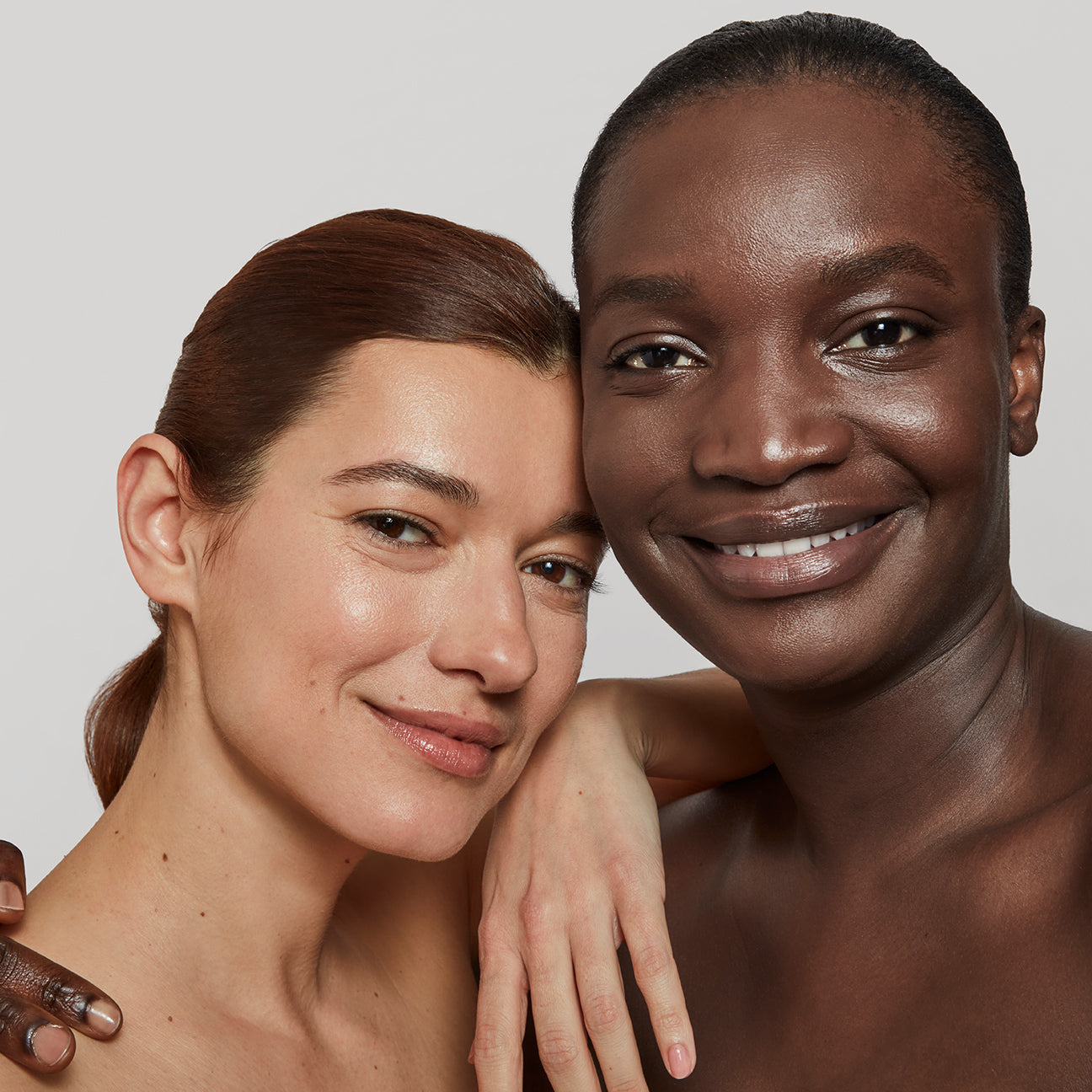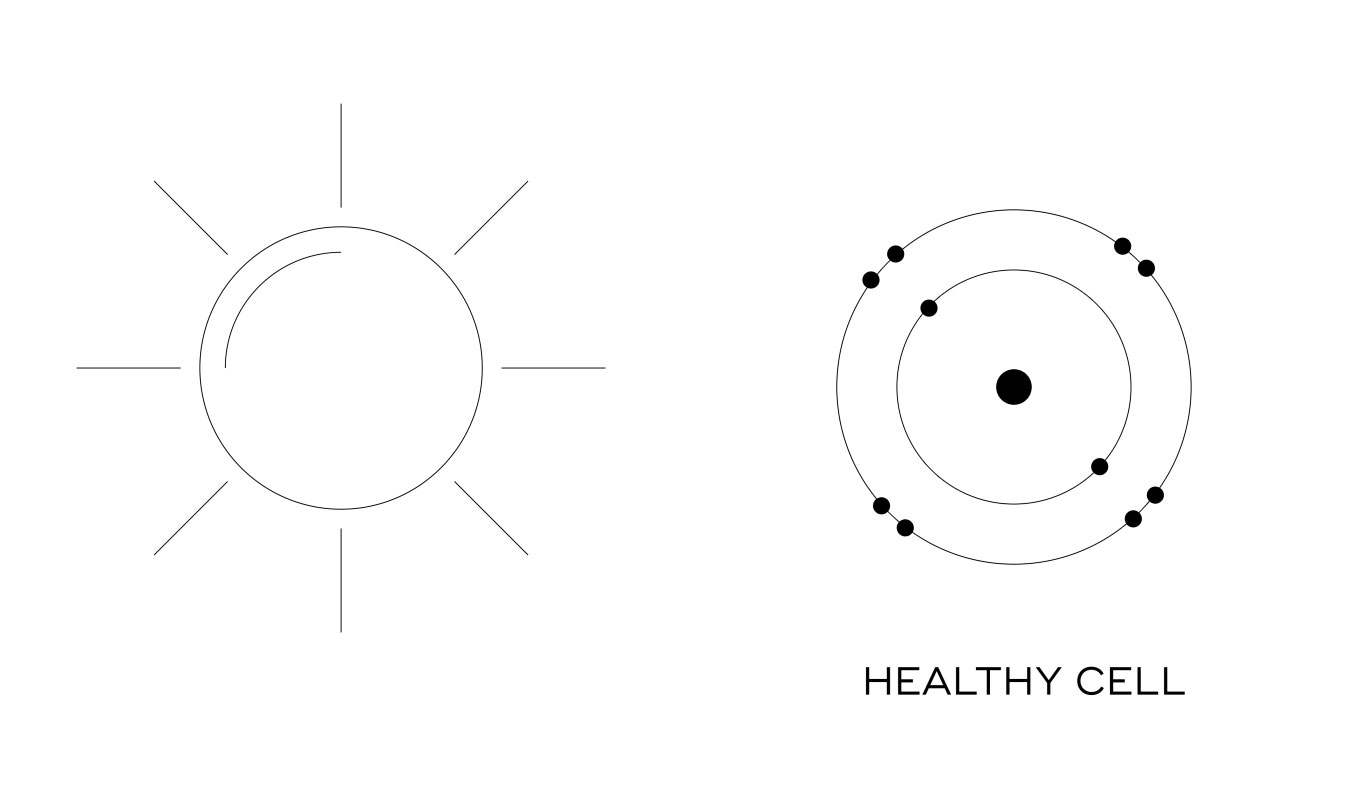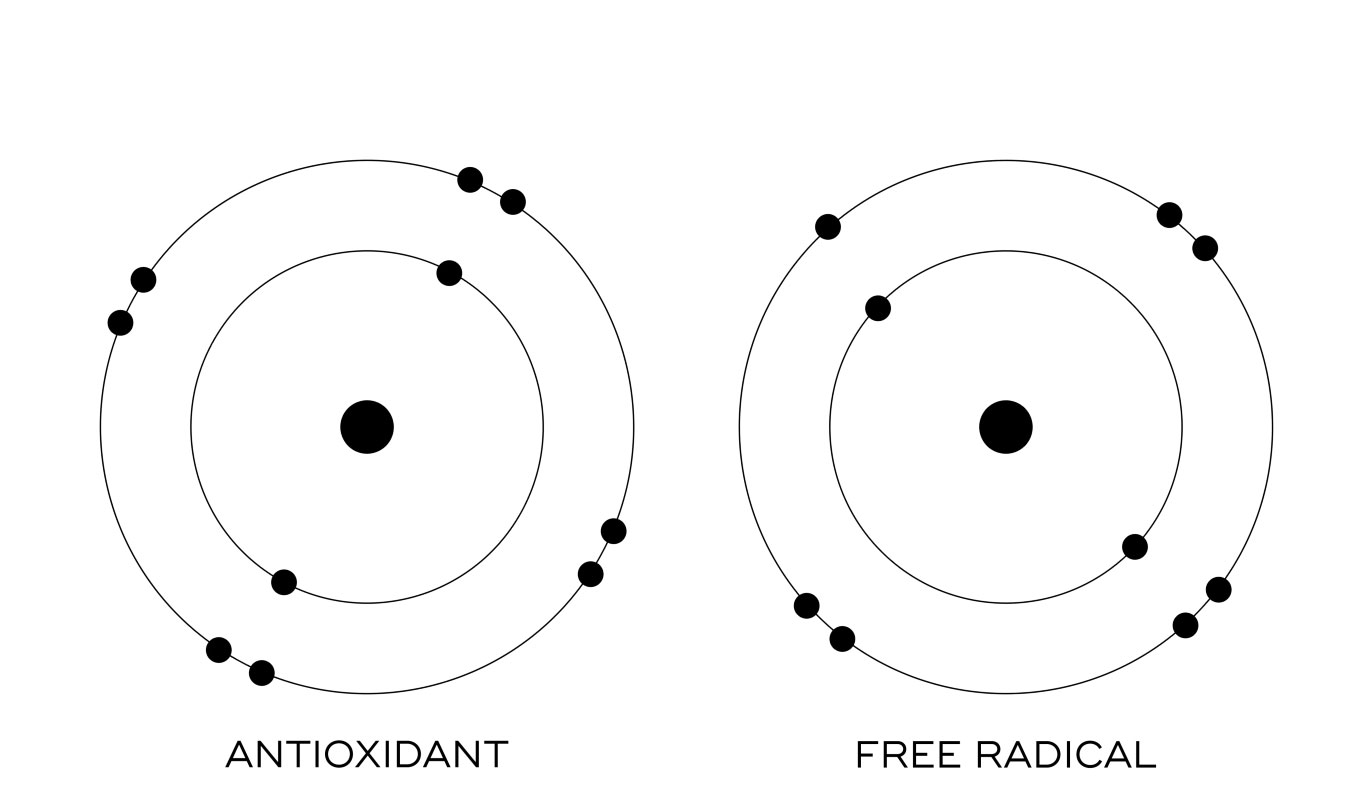What Are Free Radicals And How Do They Affect The Skin?
Written by: Radhika Sen
Updated on: 22nd July 2025

Just about everyone seems to be familiar with the terms antioxidants and free radicals. But most of us only recognise them as the ‘good guys’ and the ‘bad guys’. So let’s be brave and embrace a short lesson on free radical chemistry to gain a better understanding of the enemy we face daily.
What are free radicals?
Everything around us, including our skin, is made up of spectacularly small building blocks known as molecules and atoms. Surrounding each of these are even smaller, fast-moving particles called electrons. For a molecule to remain stable, its electrons prefer to exist in pairs.
However, external stressors can disrupt this balance, causing molecules to lose an electron. The result is a free radical: an unstable molecule with a single unpaired electron, constantly searching for another electron to restore its stability.
This instability causes free radicals to steal electrons from other nearby healthy molecules, turning them into free radicals too. This sets off a damaging chain reaction known as oxidative stress.
How free radicals affect the skin
When free radicals overwhelm the skin’s natural defences, they trigger oxidative stress – a damaging process that affects both the structure and appearance of your skin. As the chain reaction continues, healthy skin cells and essential proteins like collagen and elastin become damaged, weakening the skin’s framework and leading to visible signs of ageing. Over time, this accelerates the ageing process and contributes to long-term skin health decline. Common effects of free radical damage on the skin include:
✓ Breakdown of collagen and elastin - fine lines, wrinkles and sagging
✓ Disruption of the skin barrier - dryness, irritation and increased sensitivity
✓ Increased pigmentation - dark spots and uneven skin tone
✓ Dull, lacklustre complexion - loss of radiance and glow
✓ Slower skin recovery - reduced ability to repair daily damage
This damage builds up beneath the surface over time, long before it becomes visible, making daily protection essential.


What causes free radicals in the skin?
Free radicals are formed in the skin by both external aggressors and internal lifestyle factors. Common triggers include:
✓ UV radiation
✓ Pollution
✓ Cigarette smoke
✓ Blue light exposure
✓ Stress, poor diet, lack of sleep, and chronic inflammation
While the body does produce some free radicals naturally, this daily exposure from modern life can easily overwhelm our skin’s defences, leading to accumulated damage and the early onset of skin ageing.
What can we do about free radicals?
While we can’t completely avoid free radical exposure, we can protect our skin against their damaging effects. Prevention is key, especially before visible signs of ageing take hold. That means making smart daily choices: from healthy habits like eating a balanced diet, wearing sun protection and getting quality sleep, to applying topical antioxidants every morning.
Antioxidants help neutralise free radicals before they cause harm. Although our bodies naturally produce some, this defence system can easily become depleted, making it essential to top up daily through targeted skincare.


By building antioxidant protection into your daily skincare – ideally before signs of visible ageing appear – you can help limit long-term skin damage.
What are some of the best antioxidants for skin?
Some of the most effective antioxidants in skincare include:
Among them, tetrahexyldecyl ascorbate stands out as a gold-standard form of vitamin C. This ultra-stable, lipid-soluble molecule penetrates deeply into the skin, delivering long-lasting antioxidant protection and visible protection, without the irritation often associated with traditional vitamin C. It’s the powerhouse behind our bestselling C-Tetra range, trusted for daily antioxidant defence.
Innovative antioxidants like acetyl zingerone are also reshaping the way we protect skin from premature ageing and environmental damage. Derived from ginger, this omni-antioxidant. targets multiple types of free radicals at once, while helping to calm visible inflammation and reduce oxidative stress - two key drivers of skin ageing.
Incorporating a blend of proven antioxidants into your routine is a powerful way to help maintain a radiant, youthful-looking complexion.

C-Tetra Advanced: Next-generation antioxidant skincare
Meet C-Tetra Advanced, Medik8’s most advanced antioxidant serum yet. Powered by 20% tetrahexyldecyl ascorbate, this cutting-edge formula works deep within the skin to accelerate brightening, even skin tone, and prevent premature ageing.
What sets it apart is the addition of acetyl zingerone targets a broad range of oxidative stressors, including singlet oxygen, hydroxyl radicals and peroxynitrite, while phytoexosomes enhance the delivery and performance of these advanced actives. Together, they are clinically shown to enhance the efficacy of vitamin C, and neutralise the effects of free radicals.
C-Tetra Advanced is engineered for a smoother, more radiant complexion and daily antioxidant protection. The fast-absorbing, fragrance-free gel-based formula is suitable for all skin types, including sensitive. It fits seamlessly into your CSA routine - vitamin C & sunscreen by day, vitamin A by night. Non-comedogenic, alcohol-free, and deeply hydrating, it’s your daily armour against environmental damage.
Futureproof your skin with daily protection
Free radicals are one of the leading contributors to premature skin ageing – breaking down collagen, accelerating dullness and weakening the skin barrier over time. That’s why daily protection matters.
At Medik8, we believe prevention is just as important as correction. Our science-led, results-driven approach means you get simplified routines powered by advanced formulas that deliver real results, without compromising on skin health.
Start your day with powerful antioxidant protection. Whether it’s C-Tetra Advanced or another vitamin C serum from our range, integrating antioxidants into your morning routine is one of the most effective ways to futureproof your skin.
FAQ's
Yes. Free radicals can trigger oxidative stress in the skin, which leads to inflammation. This can manifest as redness, sensitivity, or irritation and may worsen inflammatory skin concerns over time.
Examples include singlet oxygen, superoxide anion, hydroxyl radicals, and peroxynitrite. These are highly reactive molecules that can damage proteins, lipids and DNA in the skin.
Free radicals contribute to visible skin ageing by breaking down collagen and elastin, increasing pigmentation, and impairing skin repair mechanisms. The result? Fine lines, dullness, sagging and overall skin fatigue.
Yes, sunscreen helps protect the skin from UV-induced free radicals.
At Medik8, many of our sunscreens are formulated with added antioxidants, such as polyphenols, to provide an extra layer of defence. However, for complete protection, combining sunscreen with a targeted antioxidant serum is ideal. This dual approach helps defend against not just UV, but also pollution and other environmental stressors.
They can. Free radical activity can disrupt melanin production and trigger inflammation, both of which contribute to uneven skin tone and pigmentation over time.
Vitamin C neutralises free radicals by donating electrons, effectively stopping the damaging chain reactions. It also supports collagen synthesis and brightens skin for added protective and corrective benefits.
Topical antioxidants, such as vitamin C and Acetyl Zingerone, are key. Pair these with daily SPF, a balanced diet, good sleep, and reduced stress for a holistic defence against free radical damage.







